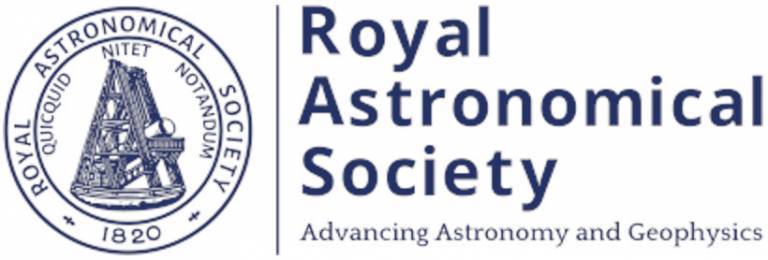Astrophysics represented at Royal Astronomical Society Awards.
15 January 2020
The Royal Astronomical Society has announced its award winners for 2020, the bicentenary of its foundation.

Alongside gold medals for Professor Yvonne Elsworth (University of Birmingham) and Professor Sandra Moore Faber (University of California Santa Cruz), and a range of other awards, all three of the RAS ‘Named Lectures’ will be given by UCL MAPS Academics.
The Gerald Whitrow Lecture is given every two years by a distinguished and eloquent speaker on any topic in cosmology, including its philosophy. For 2020, the Gerald Whitrow Lecturer will be Professor Andrew Pontzen. Professor Pontzen has conducted exceptionally creative and innovative work in a variety of fields, from the dynamics of galaxy formation and evolution to the dynamics of general relativity and cosmological perturbations, as well as in the studies of the nature of dark matter and dark energy. He is an excellent public speaker and is highly sought-after for radio and television interviews. His standing in Outreach led him to become part of the Advisory Panel for Cheltenham Science Festival, which develops ideas for events and future directions. For these reasons, Professor Andrew Pontzen has been awarded the Gerald Whitrow Lectureship for 2020.
Given annually by a distinguished and eloquent speaker on a suitable topic in astronomy (including astrochemistry, astrobiology, astroparticle physics, etc), Professor Ofer Lahav has been awarded the 2020 George Darwin Lecture in recognition of his influential research on cosmology and particularly for his leadership in the Dark Energy Survey. DES has been a highly influential project, producing a diverse range of science extending from studies of the Solar System and the Milky Way, to weak gravitational lensing, follow-ups of gravitational wave events, distant supernovae and quasars. His continued leadership places the UK in a strong position to exploit future projects such as the Large Synoptic Survey Telescope, the Dark Energy Spectroscopic Instrument and ESA's Euclid space mission.
Finally, the James Dungey Lecturer for 2020 will be Professor Sarah Matthews. The James Dungey Lecture is given annually by a distinguished and eloquent speaker on a suitable topic in geophysics (including solar physics, solar-terrestrial physics or planetary sciences). Sarah has extensively studied the white light emission in solar flares, developing models that determine the dominant physical processes and has conducted statistical studies of these energetic events, proving that this emission is not just a consequence of so-called “Big Flare Syndrome”. Professor Matthews is known world-wide for her expertise in sunquakes, which has led to her representing the UK solar physics community on the board of the European Association of Solar Telescopes, to design and develop the European Solar Telescope, and she is actively involved in planning observing campaigns for the new US Daniel K Inoue Solar Telescope, yielding novel datasets that will reveal new insights into sunquakes. Sarah is an excellent and enthusiastic communicator of solar physics and her James Dungey lecture will help inspire the community with the revelation of these fantastic new facilities.
Full details of these lectures, and the other awards given, can be found on the RAS Website.
 Close
Close

